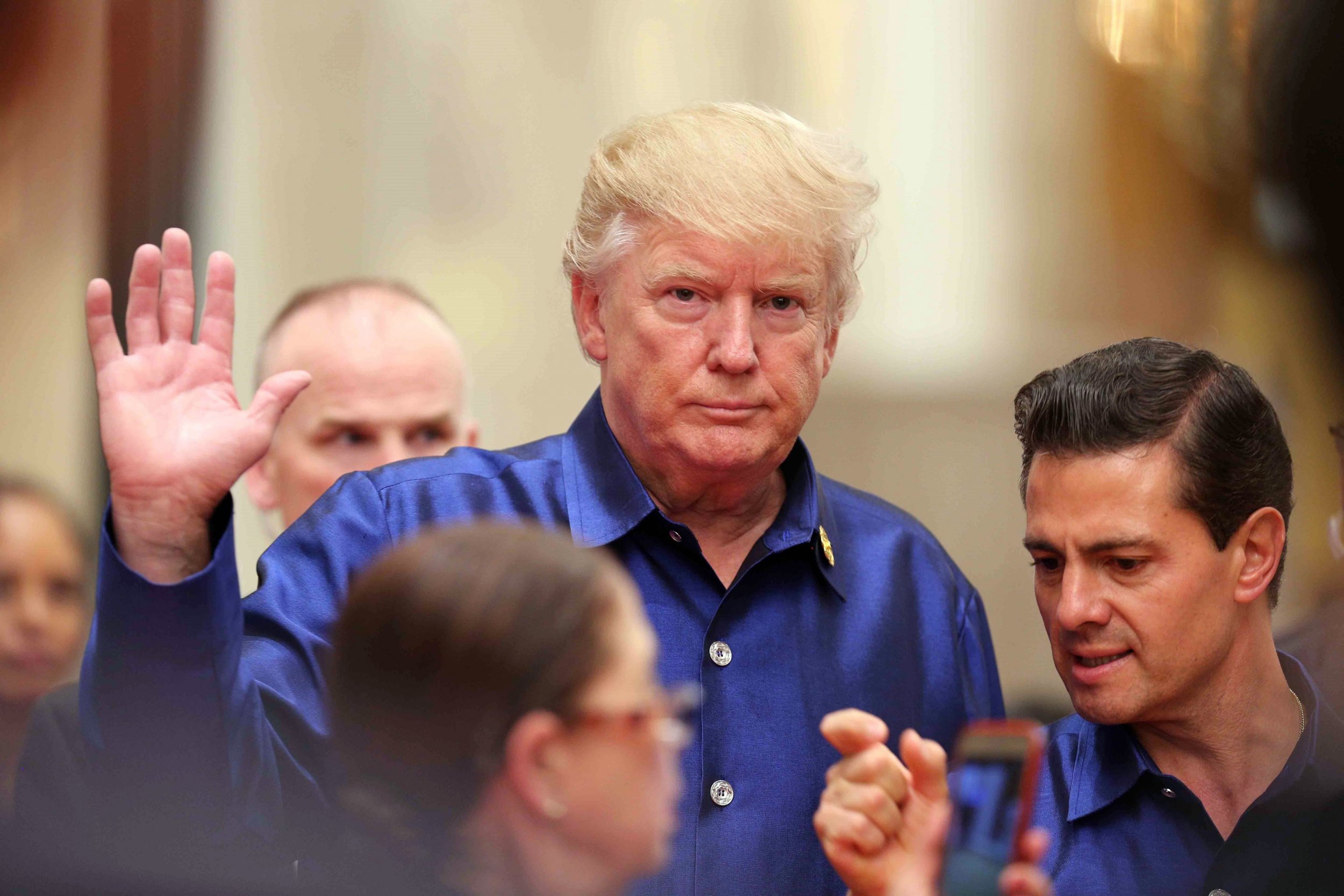
In 2015, Donald Trump kicked off his presidential bid with a crude depiction of Mexican immigrants as drug dealers, rapists and criminals, and he spent much of his campaign deriding the North American Free Trade Agreement while stressing his "America First" doctrine. President Trump has now been in power for a year, and some experts are wondering if this stance has weakened the U.S.'s position in Latin America.
He has not softened on the hemisphere during his first 365 days as president: Trump's protectionist views on the economy have stalled NAFTA renegotiations, and he has continued to insist on the construction of a wall along the U.S.-Mexico border. What's more, the president reportedly referred to El Salvador as a "shithole," terminated deportation protections for thousands of Central American and Haitian immigrants and tightened U.S. policies toward Venezuela and Cuba.
Trump's actions have made the U.S. unpopular in the region. The idea of a border wall is strongly rejected—94 percent of Mexicans oppose its construction—and U.S. favorability ratings have tanked in several Latin American countries, according to a recent Pew Research poll.
Regardless, the White House director of media affairs asserted that the Trump administration "has fostered positive policies" for Latin America in the realms of trade and national security.
"The president sent [Vice President Mike Pence] to travel to Latin America last year to make sure that trade and hemispheric security [stay] solid and that the United States remains a leader within the region," Helen Aguirre Ferré told Newsweek. "[Then] Department of Homeland Security Secretary [John] Kelly went to Miami for a conference with Central American nations [and Mexico in June] to talk about issues of mutual concern, including national security and border security, and how we can help each other against narco-trafficking and international crime."
What should Latin America expect during Trump's second year as president? A rundown of some of the region's most pressing issues follows.
Mexico: What will happen with NAFTA and the border wall?
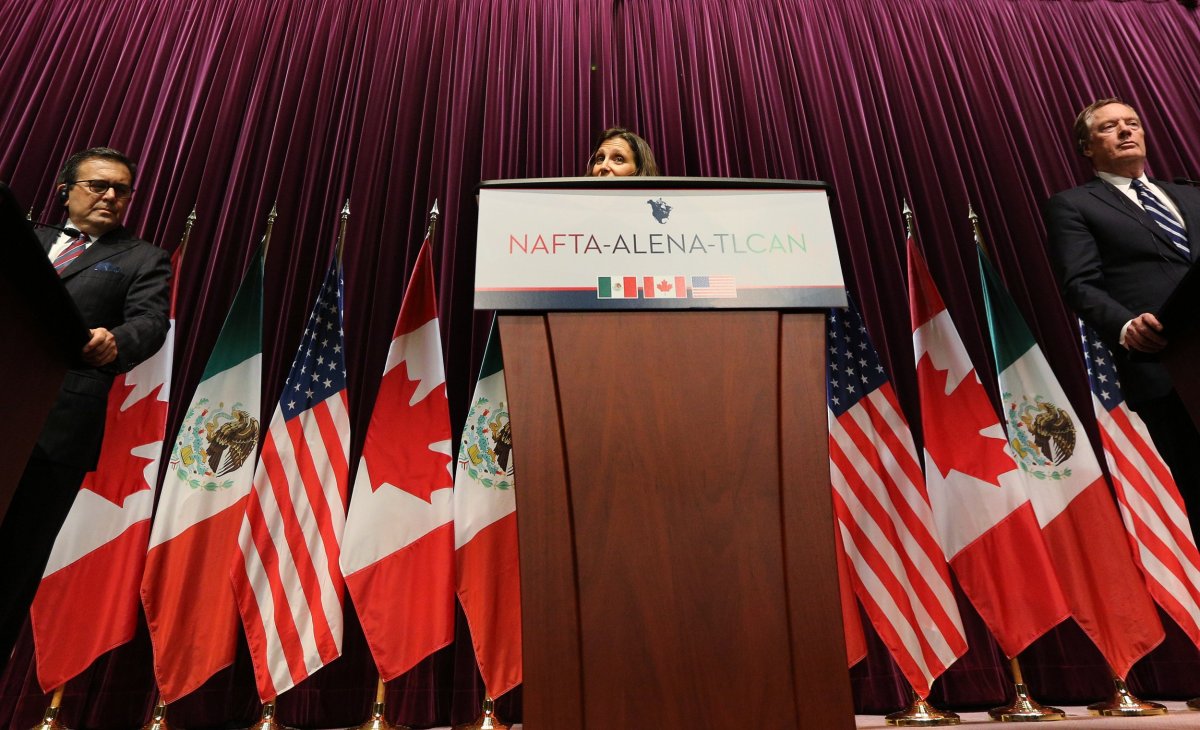
Trump has repeatedly claimed that Mexico will pay for the border wall "indirectly through NAFTA," the free trade agreement he has lambasted on Twitter and during numerous rallies across the country. As a result, some experts believe NAFTA negotiations with trade partners Mexico and Canada will go nowhere.
"There's no doubt NAFTA needs to be upgraded; however, because of the current context I don't believe there will be a rational discussion," Eduardo Gamarra, professor of political science at Miami-based Florida International University, told Newsweek. "I don't see a modernization of NAFTA, but I don't perceive a unilateral decision from the U.S. to withdraw."
We need the Wall for the safety and security of our country. We need the Wall to help stop the massive inflow of drugs from Mexico, now rated the number one most dangerous country in the world. If there is no Wall, there is no Deal!
— Donald J. Trump (@realDonaldTrump) January 18, 2018
Although NAFTA detractors say it has cost the U.S. jobs in the manufacturing sector, the pact has spawned economic integration across North America since its inception in the early 1990s. Mexico has seen a boost in agriculture exports to the U.S. and increased its automotive workforce to 500,000 from 120,000 since 1994, while 14 million U.S. jobs depend on the deal and 200,000 export-related jobs are created every year. But it could be tough to change the administration's stance on the treaty.
"It will be up to U.S. officials, elected ones, representatives and other people from farm states to try to influence the president and his team," said Shannon O'Neil, senior fellow for Latin American studies at the New York-based think tank Council on Foreign Relations. "Trump was surprised to see how much support farmers have for NAFTA in red states, when he spoke in Tennessee at the Farm Bureau" earlier this month.
As for the border wall, while its full construction is unlikely, Trump will be intent on achieving at least partial construction or finding another way to demonstrate that security has been stepped up. "It is possible that money will be earmarked for border security [instead], something that the president will demonstrate—in a possible re-election bid—that he did maintain security [throughout his administration]," said Juan Carlos Hidalgo, a policy analyst on Latin America at Washington-based think tank Cato Institute.
Christopher Sabatini, a lecturer on international and public policy at Columbia University, told Newsweek that while "Trump's large base believes in a wall," it will not be built because the administration would likely face domain disputes when attempting to acquire the land. One-third of the land required for the construction belongs to the federal government or Native American tribes, while the reminder is owned by states and private individuals—much of which is along the Texas-Mexico border.
El Salvador: The future of TPS recipients and MS-13
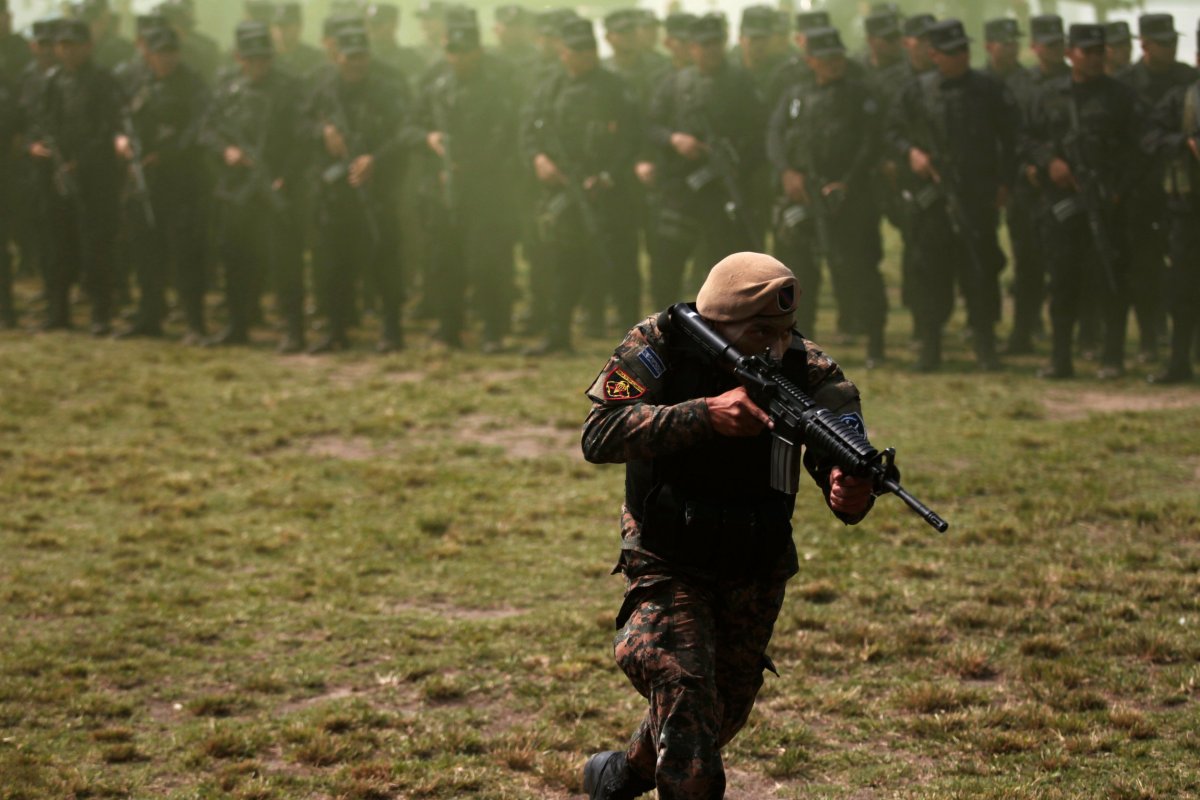
Nearly 200,000 Salvadorans will lose Temporary Protected Status by September 2019. While they could leave the country voluntarily or apply for new immigration status, it is likely that many would be deportated. That would spur a decline in remittances, a crucial source of income that helped El Salvador to stay afloat in recent years. Given that 97 percent of remittances from Salvadorans come from the U.S., this could potentially increase poverty in a country that deals with a staggering unemployment rate and creates only 11,000 jobs a year.
The U.S. and El Salvador have an agreement that restricts the number of deportations to 50,000 a year. "There are only eight flights per week to San Salvador, and the Salvadoran [airport] infrastructure does not allow to increase the pace of deportations anyway," Hidalgo said.
Even so, such a large group of deportees could disrupt the Salvadoran economy. Many would have become accustomed to higher-paying positions in the U.S. and could struggle to find positions that suit their skills. Those who do find jobs could displace other Salvadorans already in the workforce, and those people might feel like they need to attempt to migrate to the U.S. in search of better opportunities.
The Central American nation could also witness an influx of MS-13 gang members. The group has been evolving into a key partner for Mexican drug cartels, as well as a criminal and military power in Honduras (In the mid-1990s, the U.S. deported thousands of MS-13 members to El Salvador.) Washington has been working to deport gang members or those who are suspected of gang activity.
Deported Salvadorans, especially young ones, are likely to be targeted for recruitment by MS-13, which could in turn force youth to attempt to migrate to the U.S. in their search for safety. "Salvadoran population is [already] vulnerable to MS-13, so this is a monumental challenge for El Salvador, which will lead to more migration [from El Salvador to the U.S.]," O'Neil predicted.
Current U.S. policy on El Salvador arises from Trump's "ad hoc responses and malice," Sabatini said. "Returning 200,000 to El Salvador might increase the chance of them returning to the U.S. without papers. There are no jobs, no opportunity" in El Salvador.
Venezuela: Will officials face more sanctions?
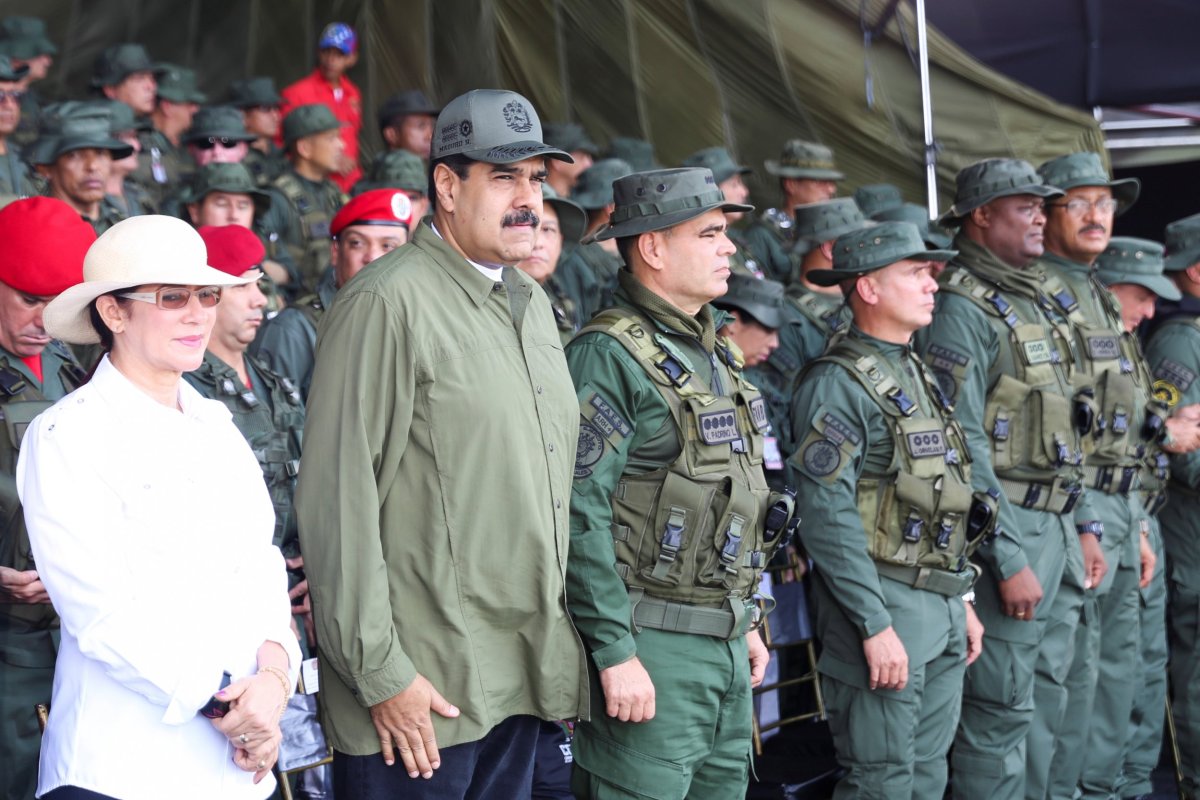
Since mid-2017, the Trump administration has imposed sanctions on Venezuelan officials and prohibited U.S. financial institutions from providing new cash to state oil giant Petróleos de Venezuela or the Venezuelan government. The sanctions have proved troubling for the Nicolás Maduro regime, which has struggled to make good on its debt payments. In August, Trump said he would not rule out "a military option" to mitigate the political crisis in that country.
Asked whether the U.S. will impose more sanctions on Venezuelan officials, Sabatini said Washington "does not have the appetite to expand sanctions. The problem here is that at a certain point, it will stop being effective." Hidalgo predicted the U.S. will tighten sanctions while keeping in mind that "it does not want to impose broader sanctions on the Venezuelan economy because it will affect the population. The United States would not want to be held accountable for an economic collapse in that country."
While China and Russia seek to exercise more clout in Venezuela by way of military partnerships and arms sales, according to the president's National Security Strategy, the administration must explore diplomatic measures with regional and international players. If Trump makes good on his promise to impose sanctions on Venezuela's oil exports, it could affect jobs in more than 20 U.S.-based refineries—and it might raise gas prices for American consumers.
"The U.S. has to mobilize other observer nations to engage in some serious talk about human rights," Sabatini added. Meanwhile, O'Neil warned that if the U.S. sole goal is to bring down the regime, it will be unsuccessful. "Right now the U.S. government's objective is a regime change, but sanctions rarely achieve this end," she added.
Cuba: An island in transition
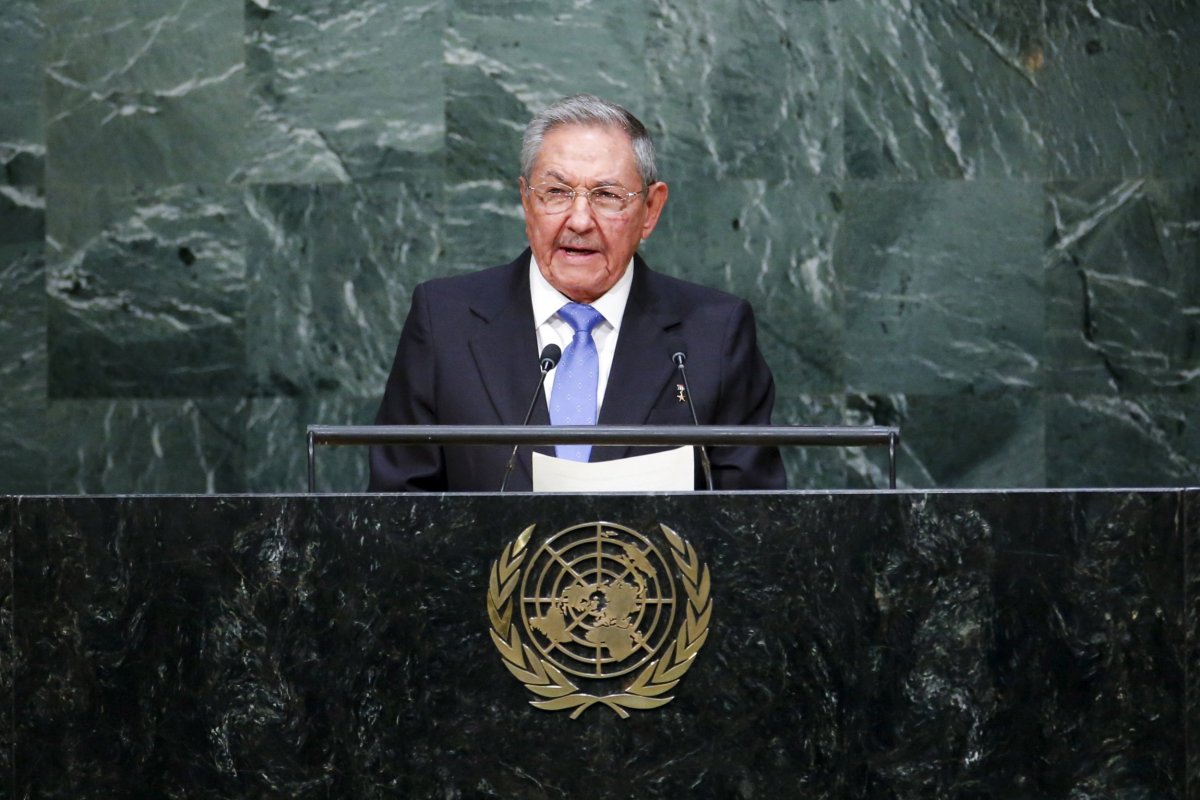
In December, Cuban leader Raúl Castro announced that he would leave power in April, possibly passing the torch to Vice President Miguel Díaz-Canel, who would be the first leader to be born after the revolution on the island in the 1950s. This transition occurs amid an eroded U.S.-Cuba relationship, as the Trump administration opted to roll back some Obama-era policies, such as its loosening of individual tourist travel restrictions and increased access to businesses and hotels related to the Cuban military. The ties between the two countries also took a hit after reports of an alleged stealth sonic attack that was said to have caused hearing loss and cognitive impairment among American diplomats working in the U.S. embassy in Havana in 2016. This led to the expulsion of 15 Cuban diplomats from Washington last September.
Even though some reports indicated that Castro's departure could "provide a window for lifting" the 57-year-old U.S. trade embargo on Cuba, it is unlikely that bilateral relations will improve immediately even if Castro steps down. "Trump and his team will continue to carry out their rhetoric," Gamarra said. "Unless there is an unforeseen circumstance, there will be more of the same, to the detriment of Cubans living on the island."
Sabatini added, "First of all, Castro will still remain in power because he will be the chief of the Communist Party, so he'll be behind the throne. We should cultivate [better] relations but it won't happen miraculously in the next couple of months."
In October, Diaz-Canel rejected Trump's calls to restore "democracy and capitalism" on the island, according to Reuters. "Cuba will not make concessions to its sovereignty and independence, nor negotiate its principles or accept the imposition of conditions," he said at the time. "The changes needed in Cuba will solely be carried out by the Cuban people."
Despite the tensions, U.S. businesses might pursue projects in Cuba, particularly in food production, biotechnology, construction and energy. Furthermore, Cuban and U.S. officials are likely to continue cooperating in the fight against the illicit drug trade, after the countries held talks during a meeting in Washington last week.
What's next for the region?
Aguirre Ferré said hemispheric solidarity is of paramount importance to the Trump administration.
"The U.S. looks forward to engaging other countries in finding other agreements that are mutually beneficial," she said. "The Trump administration has done more to support human rights in Cuba and Venezuela, [as well as] bilateral trade agreements, in the first year than any administration has done in four or eight years. We are proud of our record in our first year."
But the future of U.S.-Latin American relations is uncertain. Several countries in the region will be holding elections, and emerging leaders in countries such as Mexico, Colombia, Brazil and Venezuela could be less than friendly to Washington.
"The elections will be decided on domestic policies rather than U.S. policies," O'Neil noted. "Not engaging in 2017 means that [the Trump administration] lost this opportunity," she said, adding that countries like Mexico, Chile and Peru have moved forward with their own agendas, such as joining the Trans-Pacific Partnership—an entity Trump withdrew from earlier last year.
Sabatini also pointed to the U.S.'s "waning clout" in the region. "This is a hemisphere that loves multilateralism," he said, yet Secretary of State Rex Tillerson did not attend a vital Organization of American States meeting in June, during which Venezuela was going to be condemned for human rights violations. He also said it's likely Trump will not attend the Summit of the Americas in Peru in April.
"We can lose more leverage in the region at the expense of our own national interest, especially when it comes to [gathering] U.N. votes, for example," Sabatini said.
Hidalgo concluded that it's in all the countries' interest to maintain a relationship in terms of security and immigration policies. "We're not at the lowest point ever, but this is certainly a time where bilateral relationships have not thawed."
Uncommon Knowledge
Newsweek is committed to challenging conventional wisdom and finding connections in the search for common ground.
Newsweek is committed to challenging conventional wisdom and finding connections in the search for common ground.
About the writer
Robert Valencia is deputy world editor for Newsweek. Robert has covered issues related to drug policy, human rights, U.S. presidential ... Read more
To read how Newsweek uses AI as a newsroom tool, Click here.








